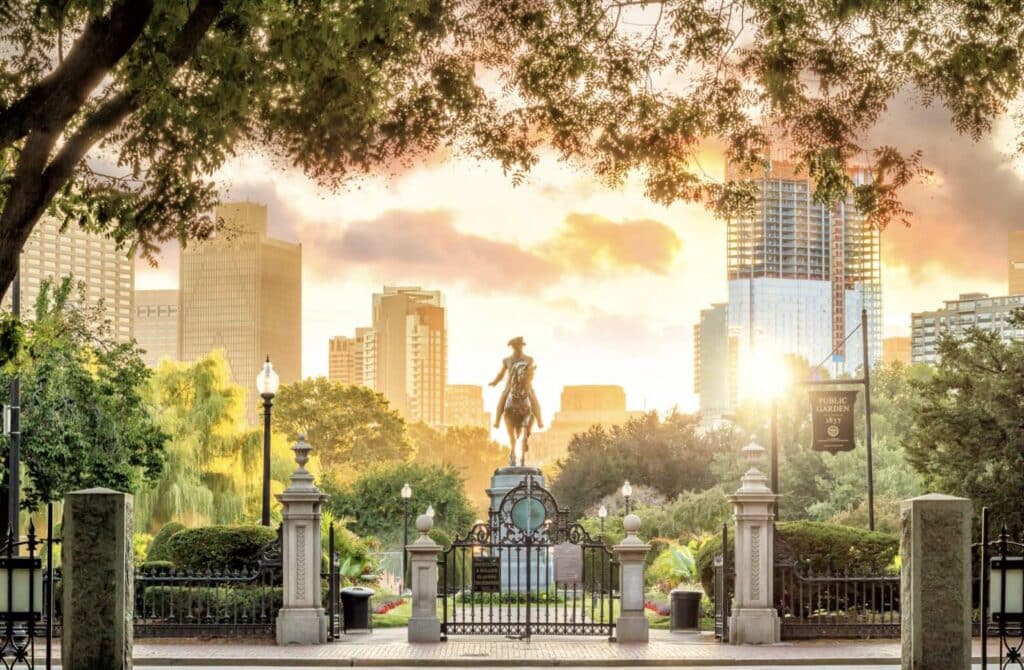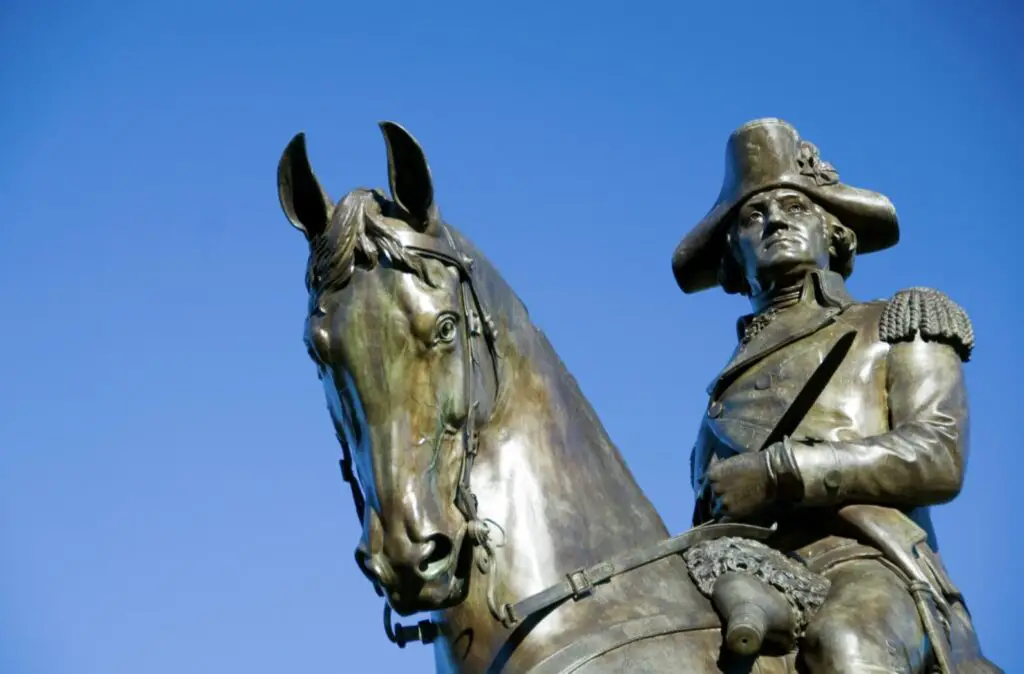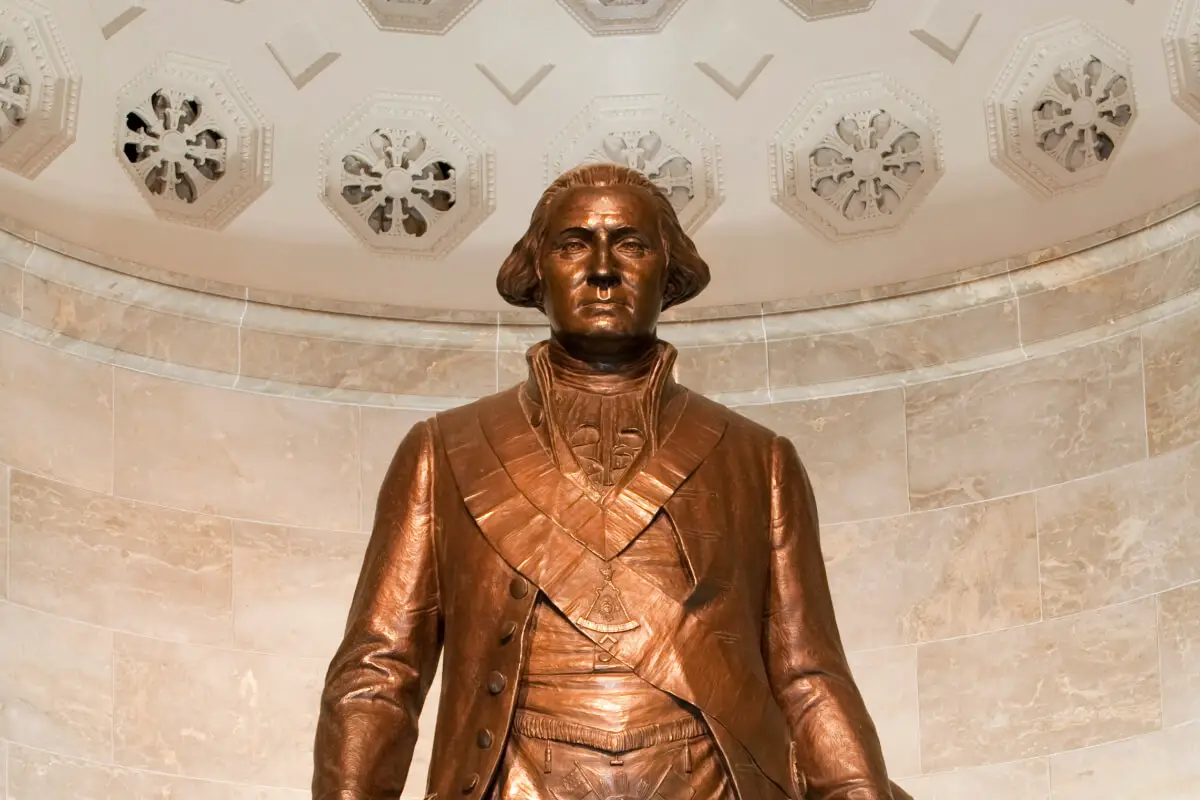The religious beliefs and practices of prominent historical figures can shed light on their motivations, guiding principles, and the broader cultural context in which they operate. One such figure is George Washington, first President of the United States and revered Founding Father. Born into a Protestant household influenced by the Church of England, Washington’s early life undoubtedly shaped his religious perspectives.
These perspectives, in turn, influenced his leadership style and policies during his monumental presidency. But what exactly were these religious beliefs and practices? How did his faith influence his leadership and the formation of a new nation? With the help of historical evidence and scholarly interpretations, this exploration aims to probe these issues and uncover more about the great individual behind the title, shedding light on the ongoing debates surrounding George Washington’s religion.
Table of Contents
- George Washington’s Religious Background
- Religious Practices of George Washington
- Influence of Religion on George Washington’s Leadership
- Controversies and Debates Surrounding George Washington’s Religion
- Related Questions
George Washington’s Religious Background
On the Trail of George Washington’s Early-Year Religious Influences: A History-Tinged Travelogue
Ah, the thrill of discovery! Be it a hidden beach in Bali, a quaint café in the heart of Paris, or the secrets tucked away in historical narratives. Much like travel, history holds the promise of untold tales, fascinating facts, and long-forgotten mysteries. Undoubtedly, some of the most intriguing stories are those of revered figures like George Washington. Have you ever wondered what shaped his religious beliefs during his formative years? Let’s embark on this historical exploration and journey back in time.

George Washington, America’s first president, had his initial brush with religion in his childhood home, Pope’s Creek, Virginia. Raised in the Church of England communion, today’s Episcopal Church, young George’s belief system was primarily influenced by this faith. Want to catch a glimpse of his early religious encounters? Step foot in St. George’s Church, Fredericksburg, a colonial staple and an intriguing window into Washington’s past.
The roots of Washington’s beliefs also extend to the Rectory Book – a cherished religious text from his father, Augustine Washington’s collection, packed with proverbial guidelines and spiritual instructions. Imagine unwinding in a charming, rustic library, your fingers brushing across the age-old wisdom of the Rectory Book, and you might hear the whispers of Washington’s past.
History suggests that Washington did not experience direct clerical influence during his childhood due to his father’s early demise and the absence of a permanent clergyman in their parish. However, the firm moral principles he held throughout his life indicate the lasting impact of his early religious exposure. Perhaps the open fields and sprawling landscapes of colonial Virginia were his cathedrals, his innate sense of justice, his sermon.
But let’s not forget the teachings of Mary Ball Washington, George’s mother. Known for her devoutness, it’s highly plausible that she was vital in molding Washington’s persistent faith in divine Providence. Stroll down the streets of 18th-century Fredericksburg – Mary’s home for almost two decades, and you might sense the echoes of her steadfast devotion.
One can’t negate the notable influence of the Enlightenment era. This vibrant period of intellectual exploration and scientific discovery significantly impacted Washington’s religious perspective, promoting a sense of religious freedom and tolerance in him. To truly feel the pulse of this era, walk the same streets that Washington did in colonial Williamsburg, a city aglow with enlightenment ideals.
As you wander through these historical monuments or journey through the pages of Washington’s life, remember to soak in the sights and experiences just as he would have. Follow his footsteps left in the sands of time, and perhaps you will stumble upon a deeper understanding of his spiritual persona.
With every traveled road and uncovered chapter from history, we can all agree that George Washington’s faith was as expansive as the diverse landscapes he traversed, from his birth at Pope’s Creek to the presidency in the capital. So next time you set foot on your journey of discovery, remember that just like Washington, your experiences, travels, and the people you encounter might shape your beliefs and perspectives in ways you’ve never imagined.

Religious Practices of George Washington
From Washington’s childhood onward, it’s interesting to note how his religious ideology evolved further as he ventured into adulthood and politics.
George Washington was a prominent figure in the Episcopal Church, which was a considerable religious institution in Virginia at the time. Washington served as both vestryman and churchwarden for his parish, a common practice of the gentry in colonial Virginia. These positions offered not only a platform for spiritual engagement but also opportunities for civic leadership.
Just as interesting is his approach to faith. While his public life demonstrated respect and support for organized religion, his private expressions of faith were marked by a deep personal reverence that aligned well with his stoic personality. Much of Washington’s interior spirituality was nurtured through individual contemplation and personal prayer. Washington often referred to God as a “Divine Providence,” reinforcing the idea that he recognized a higher power orchestrating the events of the universe.
No exploration of Washington’s faith would be complete without mentioning his participation in Freemasonry. Though this fraternity is not necessarily a religious organization, it did represent an intermixing of diverse belief systems. While its direct influence on his personal beliefs is mainly speculative, it’s interesting to note the spirit of brotherhood, moral striving, and cosmopolitanism that characterized the Freemasons of Washington’s time.
When we follow Washington’s spiritual journey into the battlefield – particularly the Revolutionary War – we encounter more shades of his complex beliefs. As Commander-in-chief, he vigorously promoted the role of chaplains in the military, highlighting his belief in the importance of religious practice for morale and ethical conduct during wartime.
On the political spectrum, as the first president of the United States, Washington advocated for religious liberty and plurality. He believed that all citizens, irrespective of their religious beliefs, had the freedom to worship as they choose. His famous letter to the Touro Synagogue in Newport, Rhode Island, emphasizes this point—the United States government should give “to bigotry no sanction, to persecution no assistance.”
Despite being shrouded in some ambiguity, there’s no doubt that George Washington’s spirituality significantly influenced both his personal and political life. His beliefs were a confluence of personal faith, civic participation, private prayer, cosmopolitan ideals, a respect for religious diversity, and an unwavering trust in a higher power, which beautifully mirror our exploration of his multifaceted life.

Influence of Religion on George Washington’s Leadership
Venturing deeper into George Washington’s religious life, one discovers facets that played a significant part in his leadership roles. Post-childhood, his association with the Episcopal Church, for instance, weaved an intriguing chapter in his religious narrative. A devoted member, Washington served as a vestryman and churchwarden in two of Virginia’s parishes. His deeds in these positions reveal an individual committed to community welfare and religious practice.
However, he steered clear of overt religious showiness. His personal approach to faith was private and quieter. This is reflected in instances where Washington chose to retreat during the Eucharist, implying a personal interpretation of the Anglican faith rather than a literal one. His letters and personal notes often reflected a deep reverence for “Divine Providence,” symbolizing a cautious reliance on God’s protection and guidance.
Then there’s the mesmerizing web of Freemasonry. As a Freemason, Washington adhered to their principles, embracing religious tolerance, personal integrity, and community service. Freemasonry’s influence on his beliefs is evident in his leadership style and policies.
As a military leader during the Revolutionary War, Washington valued the moral and spiritual health of his troops. As such, he advocated for incorporating chaplains into the military folds, thus supporting religious practice in wartime. The hires performed religious duties and acted as moral compasses, offering guidance and encouragement to the soldiers. Their presence reflects Washington’s belief in divine guidance even in times of war.
Additionally, as a Jovian Titan of the Enlightenment era, Washington championed the rights of religious liberty and plurality during his presidency. His advocacy for religious freedom and inclusivity speaks volumes about his enlightened perspective. His famous 1790 letter to the Touro Synagogue of Newport, Rhode Island, shows evidence of this. Here, he emphasized religious tolerance, a far-advanced principle.
He wrote, “For happily the Government of the United States gives to bigotry no sanction, to persecution no assistance…everyone shall sit in safety under his own vine and fig tree…there shall be none to make him afraid.”
The thread of George Washington’s religious life weaves into the fabric of his personal and political life. His faith strongly emphasized moral character, honesty, and integrity. It brought forth the belief in an active and watchful God, which was reflected in his leadership and policies.
So whether you’re tracing his steps from Colonial Williamsburg to the White House or exploring the quiet corners of St. George’s Church, one thing remains prominent: the deep resonance of Washington’s faith, his belief in religious liberty, and his commitment to values that continue to shape America today. Under his Presidency, the country emerged as a beacon of religious freedom, believing that “all possess similar liberty of conscience and immunities of citizenship.”

Controversies and Debates Surrounding George Washington’s Religion
Exploring George Washington’s religious beliefs presents us with a delightful yet complex puzzle. As we dive deeper, we plunge into the heart of the man who helped shape the freedom-loving nation we know and love today. So, let’s delve into some controversies and debates that surround his religious beliefs, highlighting how they might have influenced his stellar leadership and, hence, the course of history.
Starting with the ever-enchanting role of the Episcopal Church, Washington wasn’t just a common parishioner; he sported pivotal roles as both a vestryman and a churchwarden in two Virginia parishes. But don’t expect to find clear faith expressions; he was notoriously personal and quietly religious, creating a fascinating mystery for historians.
Washington’s practice of leaving during the Eucharist is a controversy that never fails to draw intrigue. Some interpret this as a sly dig toward a lack of faith, while others attribute it to his desire to maintain a non-sectarian image in politically delicate times.
Then we travel to the curious world of Freemasonry, another fascinating corner of Washington’s life. Its emphasis on a supreme being, moral living, and brotherhood resonated with him and eventually influenced his leadership style. However, debates persist around the extent to which it actually shaped his religious beliefs, which is definitely something to ponder.
We turn toward the battlefield and stumble upon a fascinating mix of war and faith. Washington was a keen advocate for including chaplains in the military in an era of harsh warfare. However, leagues above that role, he fundamentally believed in divine guidance during pressing times of war, presenting a layer of depth in his belief in God as a “Divine Providence”.
Exploring Washington’s presidency, we encounter his stalwart advocacy for religious liberty and tolerance. His portrayals of America as a nation of diverse faiths were revolutionary, evidencing his underlying belief in freedom of religion.
Proof of his conviction in religious liberty is found in his famed letter to the Touro Synagogue of Newport, Rhode Island. In this remarkable note, Washington emphasized religious tolerance regardless of one’s faith.
Lastly, we come to the influence of Washington’s spirituality on his personal and political life. His emphasis on moral character, honesty, and integrity clearly reflects his faith and how it shaped his leadership. The debate here lies in whether these virtues directly resulted from his faith or his inherently exemplary character.
The journey into George Washington’s religious beliefs is as vast and rich as the man himself. Controversies and debates abound, offering us a glimpse into his faith, code of ethics, and advocacy of religious freedom and tolerance.

This deep dive into George Washington’s religious beliefs and practices, their influence on his leadership, and the controversies surrounding them gives us a more nuanced understanding of the first U.S. President. The interplay between his personal faith and public role was complex and multifaceted.
While much is known about Washington’s religious practices, scholars still debate about the precise nature of his faith and its impact on his leadership. Nevertheless, one can see that his upbringing in a Protestant household influenced by the Church of England and his keen involvement in his faith played a significant role in his life and leadership. This story of George Washington’s religious journey continues to resonate as an interesting facet of a man’s life who played a significant role in shaping the United States.
At A Bus On A Dusty Road, we talk about travel, life, sailing, and ex-pat living. We are all about “Living Life As A Global Citizen.” We explore social, cultural, and economic issues and travel.
We would love to have you be part of our community. Sign up for our newsletter to keep up-to-date by clicking here. If you have any questions, you can contact me, Anita, by clicking here.
Listen to our Podcast called Dusty Roads. You can find it on all major podcast platforms. Try out to listen to one of our podcasts by clicking here.
Subscribe to our A Bus On A Dusty Road YouTube Channel with great videos and information by clicking here.
Related Questions
Is It True America Is Both Capitalist And Socialist?
America is considered both a capitalist and socialist economy; America is deemed to have a mixed economy which means it has both capitalist and socialist characteristics. Having a mixed economy in America is essential because there are some things that we need the government to intervene with on behalf of the public good.
By clicking here, you can discover Is It True America Is Both Capitalist And Socialist?.
Frank Lloyd Wright’s American System-Built West Burnham Street Homes
Nestled away on West Burnham Street in Milwaukee. Wisconsin is a hidden jewel of Frank Lloyd Wright’s architecture. One block of West Burnham street has some duplexes and houses were all designed by Frank Lloyd Wright, specifically for the working classes of the time. Today all those structures on West Burnham Street in Milwaukee are still standing as a testimony to this great architect.
By clicking here, you can discover Frank Lloyd Wright’s American System-Built West Burnham Street Homes
All About England’s Rivers Flowing Into The English Channel
Several major English rivers flow into the English Channel. These rivers include River Avon, River Dart, River Ouse, and The Solent. All of these flow into the English Channel, a body of water between England and the European mainland, especially France.
By clicking here, you can discover All About England’s Rivers Flowing Into The English Channel.

